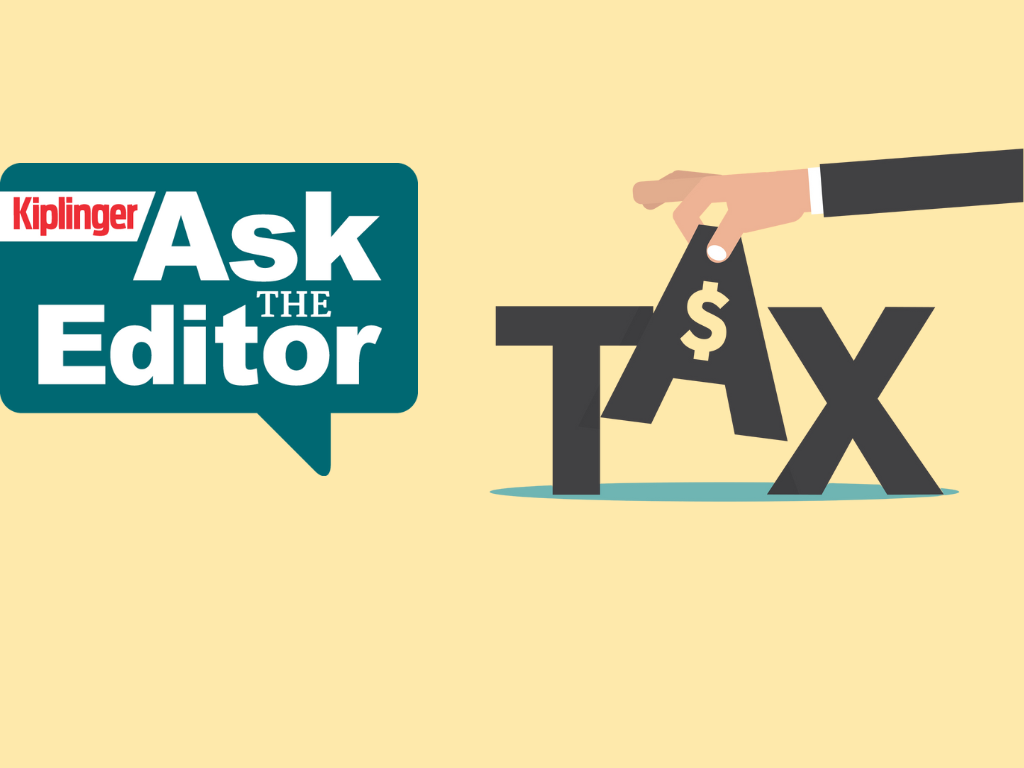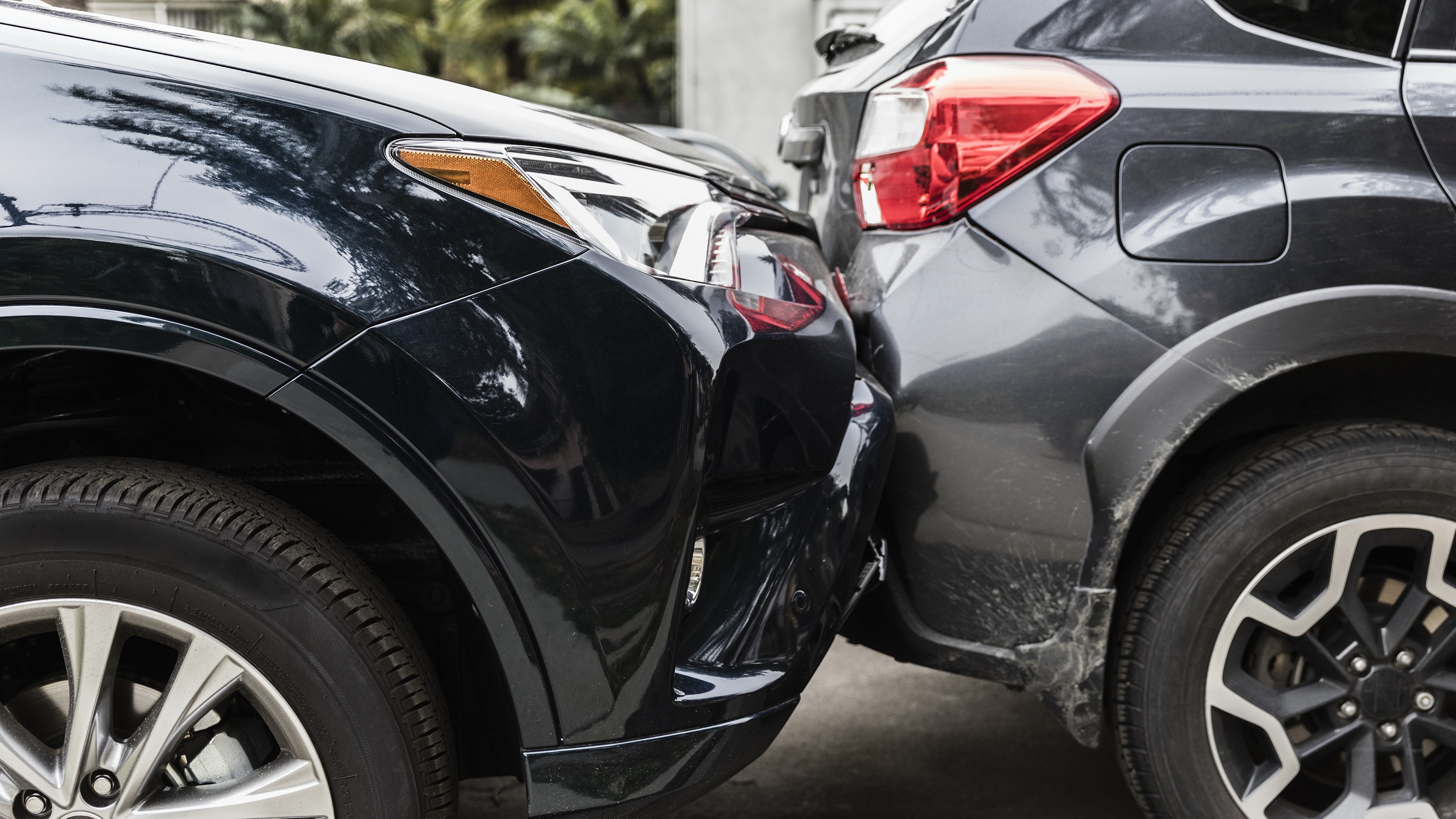10 Things You Should Know About Buying a Car Today, Even if You've Bought Before
If buying a car is on your to-do list, and it's been a while since you went shopping for a new one, this guide will help avoid any nasty shocks in the showroom.


Profit and prosper with the best of Kiplinger's advice on investing, taxes, retirement, personal finance and much more. Delivered daily. Enter your email in the box and click Sign Me Up.
You are now subscribed
Your newsletter sign-up was successful
Want to add more newsletters?

Delivered daily
Kiplinger Today
Profit and prosper with the best of Kiplinger's advice on investing, taxes, retirement, personal finance and much more delivered daily. Smart money moves start here.

Sent five days a week
Kiplinger A Step Ahead
Get practical help to make better financial decisions in your everyday life, from spending to savings on top deals.

Delivered daily
Kiplinger Closing Bell
Get today's biggest financial and investing headlines delivered to your inbox every day the U.S. stock market is open.

Sent twice a week
Kiplinger Adviser Intel
Financial pros across the country share best practices and fresh tactics to preserve and grow your wealth.

Delivered weekly
Kiplinger Tax Tips
Trim your federal and state tax bills with practical tax-planning and tax-cutting strategies.

Sent twice a week
Kiplinger Retirement Tips
Your twice-a-week guide to planning and enjoying a financially secure and richly rewarding retirement

Sent bimonthly.
Kiplinger Adviser Angle
Insights for advisers, wealth managers and other financial professionals.

Sent twice a week
Kiplinger Investing Weekly
Your twice-a-week roundup of promising stocks, funds, companies and industries you should consider, ones you should avoid, and why.

Sent weekly for six weeks
Kiplinger Invest for Retirement
Your step-by-step six-part series on how to invest for retirement, from devising a successful strategy to exactly which investments to choose.
If you drive, chances are you’ve been buying cars your entire life. You already know the buying experience inside and out.
“At this stage of life, most of my clients just want everything to be convenient and hassle-free,” says Adam Rex, a financial planner with Cornerstone Financial Services in Virginia Beach. Unfortunately, the vehicle market has some new headaches thanks to supply chain issues, tariffs and changes in vehicle technology.
Whether you’re planning to buy soon or exploring options for the future, here’s what to know about purchasing a car today.
From just $107.88 $24.99 for Kiplinger Personal Finance
Become a smarter, better informed investor. Subscribe from just $107.88 $24.99, plus get up to 4 Special Issues

Sign up for Kiplinger’s Free Newsletters
Profit and prosper with the best of expert advice on investing, taxes, retirement, personal finance and more - straight to your e-mail.
Profit and prosper with the best of expert advice - straight to your e-mail.
1. Prepare for sticker shock
The average price of a new car just hit over $50,000, according to Kelley Blue Book. “There were steep price increases after the COVID-19 pandemic, and prices remain at an elevated level,” says Chase Gardner, data insights manager at Insurify, an online car insurance quote marketplace.
2. Consider going for a 'budget' test drive
Given the skyrocketing prices, monthly payments have also gone up. You can get a feel for your expected loan payment using a website like Calculator.net.
Consider a budget “test drive,” says Rex. “For a few months, set aside what you expect to pay on the new car and see if it’s doable.” Don’t forget about adding money for insurance, registration and maintenance. At the end of the test, you’ll have extra cash for a down payment.
It’s especially important to plan ahead if you’ve recently retired on a fixed income and have a different household budget than when you were working. The number of people struggling and missing car payments is climbing quickly for consumers of all income levels because of high prices and interest rates. Avoid getting locked into something uncomfortable.
3. Leasing simplifies things
As always, when getting a new car, the question is whether to buy or lease. When you buy, payments start higher, and you’re responsible for more repairs and maintenance. But after you pay off the loan, payments stop. Plus, you can later sell the vehicle or trade it in.
Leasing is a long-term rental, so the payments never end. However, you can regularly replace your vehicle with a new model every few years at the end of each lease, and you don’t have to repair damage from normal wear and tear.
Given the tradeoffs, Rex finds leasing to be a more convenient fit for retirees, especially if they plan to continue driving for only a few years. “When it’s done, you just hand the vehicle back to the dealer. There’s no hassle of selling,” says Rex. Just be aware of any mileage caps and restrictions if you drive a lot. For snowbirds who go between New York and Florida every winter, leasing is probably not the right fit.
4. Weigh financing versus paying out of savings
If you’re going to buy, think about whether it could make sense to pay off the entire vehicle at once using your savings.
Paying up front means you don’t have an ongoing loan payment and won’t be charged interest. On the other hand, you no longer have the money to invest. If you make a lump sum withdrawal from a pre-tax traditional Individual Retirement Account or 401(k), the entire amount will be taxable, could push you into a higher bracket and create surcharges on your Medicare premiums.
Borrowers with strong credit scores (650+) today pay between 5% and 7% for a new car loan, while subprime borrowers face double-digit interest rates. “If your investments are earning more than your quoted loan rate, financing could make sense,” says Rex, the financial planner from Virginia Beach.
5. Your loan interest could be deductible
A new provision in the One Big Beautiful Bill Act allows taxpayers to deduct up to $10,000 per year in car-loan interest from 2025 through 2028 on new, U.S.-assembled vehicles. Used car purchases and leases don’t qualify.
You can claim this tax break even if you use the standard deduction, making it more accessible than deductions that require itemizing. If you paid off your home and no longer qualify for the mortgage interest deduction, this new tax break can help make up the difference. The loan interest deduction does phase out for individuals with a modified adjusted gross income over $100,000 and for married joint filers with an MAGI over $200,000.
6. Consider comfort and convenience
When researching and test-driving, think about whether a vehicle would make your life easier and keep you safe on the road. “For most retirees, the best vehicle choice is a small SUV or midsize sedan,” says Gardner from Insurify. “They’re easy to park, have a higher seating position and offer great visibility.”
If you spent your career driving a high-powered sports car or dreamed your whole life about getting one in retirement, ask whether this is the wisest move. They’re expensive to repair and less reliable. “No one wants to worry about a car breaking down on the way to a doctor’s appointment,” says Rex.
The faster speed increases the chances of an accident, especially if your reaction time is not what it used to be. Plus, since sports cars are lower to the ground, they are harder to get in and out of.
7. New tech can keep you safe, but also create headaches
If it’s been years since you bought a car, you might be taken aback at how much the technology has changed. And often, not in a good way: distracting touchscreens instead of physical buttons, facial recognition instead of keys to start the car, and even pop-up video ads in some vehicles.
Not all innovations are a step in the wrong direction. Some have come a long way to reduce accidents, especially for tired and fatigued drivers: automatic emergency braking, blind-spot monitoring, lane-keeping assistance and backup cameras.
Still, even these safety features take getting used to. The typical 15-minute test drive might not be enough to really see if a car is a fit for your style. If you have your eye on a specific model, consider renting it for a weekend before deciding.
8. Understand car insurance costs
Car insurance rates skyrocketed after the COVID-19 pandemic, something you certainly noticed with your current bill. Even though rate hikes have slowed, premiums remain high. Keep this in mind when deciding what to buy.
Newer cars are more expensive to insure than used ones, because they have more costly parts and technology. Sports cars are also more expensive to cover, given the additional risk of a crash. You’ll enjoy an insurance discount when you start retirement, but only to a certain point.
“Drivers in their 60s enjoy the lowest average full-coverage premiums, about $155 per month,” says Gardner. “For drivers in their 70s and beyond, rates creep up as insurers factor in slower reaction times.” You can lower costs by taking a defensive driver’s course or using a pay-by-the-mile insurance policy if you aren’t on the road often.
LiMu Emu & Doug™ are on a mission to customize your insurance so you only pay for what you need. It only takes minutes to see how much you could save.
9. Downsizing simplifies things
If you own multiple cars from when the kids were living at home, ask whether you still need more than two, or even more than one. Giving up one of your cars in retirement can lead to real savings. Each vehicle increases costs for registration, insurance and maintenance even if they aren’t being driven often. Demand for used cars is extremely high, making it a seller’s market. You may be surprised by how much you get for your old vehicles.
10. Tariffs will drive up prices even more
The $50,000 record car prices don’t reflect new tariffs, as dealers haven't fully priced those in yet.
Tariffs are highest on European models, making Japanese and American vehicles comparatively affordable. Still, prices for American models could climb too, since many rely on imported parts or are partially manufactured abroad.
While you shouldn’t rush a purchase, the current landscape creates some urgency. “Tariffs will likely increase prices by another 10% to 25%. If you’re thinking of buying a car within the next couple of years, acting sooner could make sense,” says Gardner.
Note: This item first appeared in Kiplinger Retirement Report, our popular monthly periodical that covers key concerns of affluent older Americans who are retired or preparing for retirement. Subscribe for retirement advice that’s right on the money.
Related content
Profit and prosper with the best of Kiplinger's advice on investing, taxes, retirement, personal finance and much more. Delivered daily. Enter your email in the box and click Sign Me Up.

David is a financial freelance writer based out of Delaware. He specializes in making investing, insurance and retirement planning understandable. He has been published in Kiplinger, Forbes and U.S. News, and also writes for clients like American Express, LendingTree and Prudential. He is currently Treasurer for the Financial Writers Society.
Before becoming a writer, David was an insurance salesman and registered representative for New York Life. During that time, he passed both the Series 6 and CFP exams. David graduated from McGill University with degrees in Economics and Finance where he was also captain of the varsity tennis team.
-
 Quiz: Do You Know How to Avoid the "Medigap Trap?"
Quiz: Do You Know How to Avoid the "Medigap Trap?"Quiz Test your basic knowledge of the "Medigap Trap" in our quick quiz.
-
 5 Top Tax-Efficient Mutual Funds for Smarter Investing
5 Top Tax-Efficient Mutual Funds for Smarter InvestingMutual funds are many things, but "tax-friendly" usually isn't one of them. These are the exceptions.
-
 AI Sparks Existential Crisis for Software Stocks
AI Sparks Existential Crisis for Software StocksThe Kiplinger Letter Fears that SaaS subscription software could be rendered obsolete by artificial intelligence make investors jittery.
-
 Ask the Editor, February 13: More Questions on IRAs
Ask the Editor, February 13: More Questions on IRAsAsk the Editor In this week's Ask the Editor Q&A, Joy Taylor answers questions on IRAs
-
 4 At-Fault States With No-Fault Insurance Rules You Should Know
4 At-Fault States With No-Fault Insurance Rules You Should KnowThink you live in an at-fault car insurance state? These four still have some tricky no-fault insurance laws you should know about.
-
 Big Change Coming to the Federal Reserve
Big Change Coming to the Federal ReserveThe Lette A new chairman of the Federal Reserve has been named. What will this mean for the economy?
-
 Is There a Downside to Switching Your Insurance Frequently?
Is There a Downside to Switching Your Insurance Frequently?You keep finding lower rates every time you shop for insurance. Is there any reason not to take the better deal?
-
 No-Fault Car Insurance States and What Drivers Need to Know
No-Fault Car Insurance States and What Drivers Need to KnowA breakdown of the confusing rules around no-fault car insurance in every state where it exists.
-
 Why Your Home Insurance Might Not Protect You If Someone Else Lives There
Why Your Home Insurance Might Not Protect You If Someone Else Lives ThereLetting a relative stay in a second home or inherited property can quietly change your insurance coverage and leave you exposed to costly liability claims.
-
 Ask the Editor, January 30: Questions on Social Security Benefits Taxation
Ask the Editor, January 30: Questions on Social Security Benefits TaxationAsk the Editor In this week's Ask the Editor Q&A, Joy Taylor answers questions on the taxation of Social Security benefits
-
 It's Time to Rethink What 'Aging Well' Means
It's Time to Rethink What 'Aging Well' MeansDon’t fall into the trap of thinking there is a "right way" to age. Here's how to reframe aging in a healthy, achievable way.
